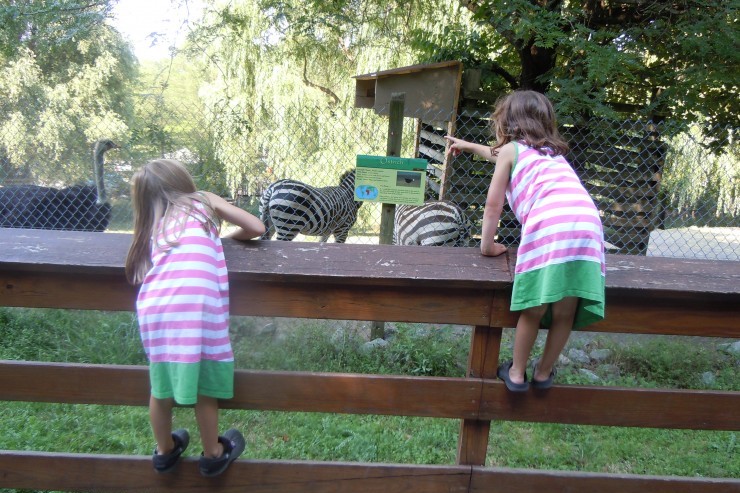Does the Church Say Humans Evolved from Matter?
by Stacy A. Trasancos | November 5, 2014 12:01 am
 [1]
[1]
After Pope Francis’ comments[2] last week about evolution and the Big Bang, a mommy-friend asked me a question. Us mommies like clarity because we need clear answers for inquisitive children. She said: “I get that the Big Bang is possible, simply caused and designed by God. I get that life changes and evolves over time. No problem. But, does the Church really say that human beings have evolved from pre-existent matter? I have a hard time with that because it doesn’t jive with being made in the image and likeness of God.” I agree. Evolution is pretty easy to accept until you consider what it means for our origins.
The Church doesn’t teach one way or the other on evolutionary science (or any science), but rather gives guidance about where legitimate opinions may be held without leading to logical contradictions with dogma. It’s like the way moms lay down rules for kids at the park. “You may not go into that street or into that lake or up that tree, but otherwise you are free to roam in these wide boundaries and explore all you wish.” Because that’s what moms do, set parameter for their children’s legitimate freedom, and the Church is a Mother.
The parameters the Church gives are that we cannot deny the reality of 1) Adam and Eve or 2) the human soul. (See Humani Generis[3], 36-37) To deny the existence of our first parents would be to deny original sin. To deny the rational soul possessing the powers of intellect and will would be to deny that we are made in the image and likeness of God.
But we can explore the science of biological evolution. At the molecular level, it is genetic. As parents know, offspring are both genetically like their parents and genetically unique as individuals. As such, offspring respond in slightly different, and sometimes in strikingly different, ways to the same environments. Over time, certain genetic traits through reproduction may be selected naturally, the same way breeders can do artificially.
Microevolution is easy to understand because it can be observed even in a laboratory[4]. Macroevolution involves vastly longer times and larger changes, but the process is the same. Offspring vary and respond to environments differently. So yes, it is plausible that our bodies materially evolved. We see that life forms were created to evolve.
What about Adam and Eve? The bottom line is: We don’t know how God created them, and maybe we never will. God revealed their reality, but not how He created them. Some theologians opine that God created the first human persons miraculously[5] outside the laws of nature. Some opine that God ensouled two bodies just as He ensouls children at conception to create the unity of the human person. (See Forsthoefel[6], p. 104) These explanations, though complex and heavily nuanced, help to consider scientific discovery in the light of faith. What matters is, as my friend said, everything God created was created out of His generous love.
- [Image]: http://www.integratedcatholiclife.org/wp-content/uploads/August-2012-035-e1415109915987.jpg
- comments: http://www.livescience.com/48524-catholic-church-big-bang-evolution.html
- Humani Generis: http://www.vatican.va/holy_father/pius_xii/encyclicals/documents/hf_p-xii_enc_12081950_humani-generis_en.html
- observed even in a laboratory: http://en.wikipedia.org/wiki/Experimental_evolution
- miraculously: http://www.kolbecenter.org/creation-doctrine-2/
- Forsthoefel: http://www.amazon.com/Religious-Faith-Meets-Modern-Science/dp/0818907045
Source URL: https://integratedcatholiclife.org/2014/11/trasancos-church-humans-evolved/